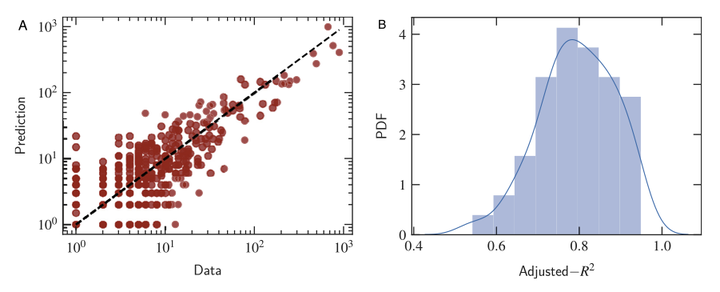
Abstract
Understanding the causes of crime is a longstanding issue in researcher’s agenda. While it is a hard task to extract causality from data, several linear models have been proposed to predict crime through the existing correlations between crime and urban metrics. However, because of non-Gaussian distributions and multicollinearity in urban indicators, it is common to find controversial conclusions about the influence of some urban indicators on crime. Machine learning ensemble-based algorithms can handle well such problems. Here, we use a random forest regressor to predict crime and quantify the influence of urban indicators on homicides. Our approach can have up to 97% of accuracy on crime prediction and the importance of urban indicators is ranked and clustered in groups of equal influence, which are robust under slightly changes in the data sample analyzed. Our results determine the rank of importance of urban indicators to predict crime, unveiling that unemployment and illiteracy are the most important variables for describing homicides in Brazilian cities. We further believe that our approach helps in producing more robust conclusions regarding the effects of urban indicators on crime, having potential applications for guiding public policies for crime control.